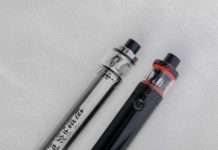Offenders are put on probation to give them a chance to remain in society instead of having to go to jail. An individual is required to comply and follow specific rules and conditions under the supervision of the court and probation officer. Examples of terms to adhere to include following state and federal laws, no changing place of residence or job before informing the probation officer, no traveling outside the state without the consent of the probation officer, submitting to treatment programs, no firearms possession, and many other conditions. In the event the offender breaks any rule, the probation officer gives a probation revocation by filing a revocation petition in court. The court hearing is done within 60 days after the petition is filed. The offender is charged and ordered for a court hearing where the judge settles whether the parolee violated their terms.
When you find yourself in this situation, you need to look for a probation lawyer to represent you in the court hearing. It’s a crucial step because the court will, most of the time, be on the probation officer’s side. A lawyer is in an excellent position to examine the probation officer and know whether he is accusing you falsely. The lawyer can dispute the accusation with evidence.
The lawyer will also collect evidence of other arising issues that you may have with your probation officer that made him file a petition. For example, you may have missed a treatment program because you were engaged in something you could not avoid at the time. The probation lawyer can collect this information and explain it to the judge. Disclosing all details to your lawyer about your failure to follow the terms of your parole can help him come up with information the judge will accept to revoke the motion.
A probation officer can also file a provocation petition when you were not on probation. Checking whether the time frame lines up with the motion can help you resolve the issue. With evidence, the judge can deny the charge based on an incorrect timeline and allow you to continue with the current probation terms and conditions.
If your probation lawyer is tactical, he can agree with the prosecutor of your case. A prosecutor provides proof to the judge that you violated the rules and conditions of probation through a preponderance of evidence. The prosecutor can either persuade or dissuade the judge on the violation terms. When your lawyer discovers that your case is flawed, he can negotiate and convince the prosecutor to come up with an agreed-upon recommendation, referred to as a stipulation. It happens when the factors that got you a provocation are well-defined. In this case, the defendant agrees he violated a condition of his parole and takes responsibility. On the other hand, the judge will follow the prosecutor’s recommendations and not revoke the defendant’s probation. A lawyer is able to negotiate better since he or she has the knowledge and the skills required.
There is a possibility where the prosecutor can withdraw the motion when he does not have to prove the violated terms of probation or due to other underlying issues. The prosecutor may have witnesses that fail to show the violation, and to avoid being in an argumentative position with the defendant, he withdraws. Another reason why a prosecutor can remove the charges is when the defendant fixes the issue on the violation, such as timely payment.
Finding an experienced and qualified criminal defense lawyer will help protect your rights after having your probation revoked. Consider hiring a lawyer from a recognized law firm to represent you. In the event that you are found to have violated the probation’s terms, strict rules and conditions may be imposed on your probation, or you might be imprisoned. The judge can also sanction the defendant for the violation and give additional requirements and time on reinstated probation. When there is no proof, and a judge finds out there was no violation, then you continue with the current terms of your probation.












